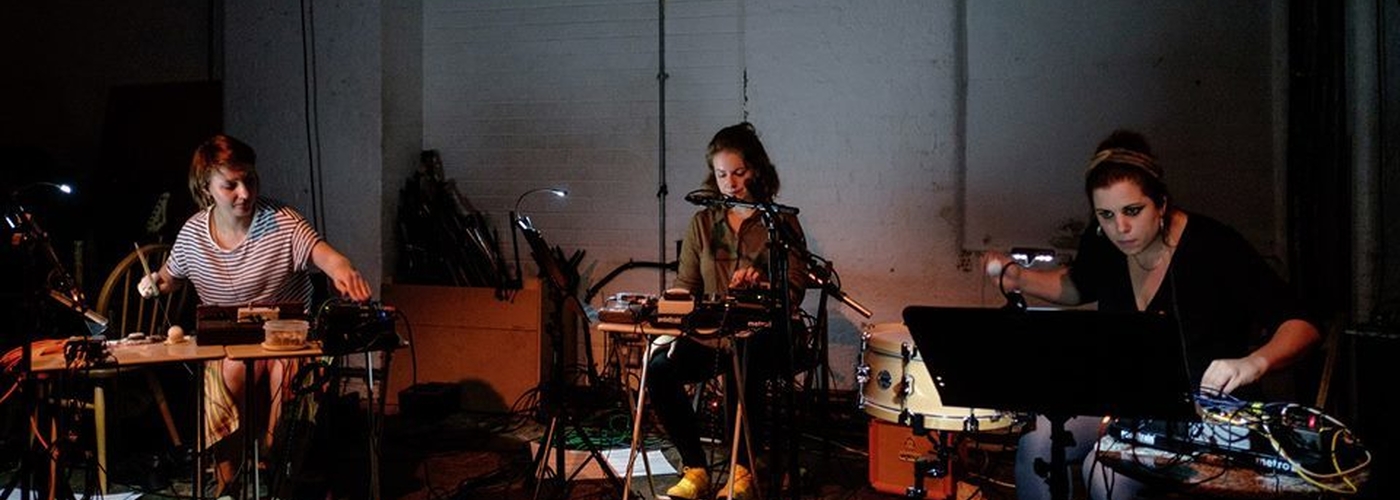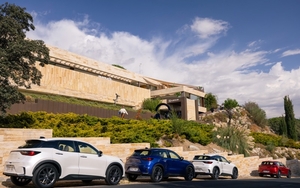This March, Manchester plays host to a festival of experimental music produced by the Sound and Music organisation in conjunction with BBC Radio 3
‘What is a microphone doing on stage when a microphone becomes a mallet?’ This is just one of the unusual questions to emerge during my conversation with Mauricio Pauly, co-curator of Cut & Splice 2017.
The cult ‘sonic art’ festival, now well into its second decade, will take place in Ancoats on the 10th and 11th of March. It’s the first time the event has been staged outside of London, and this is all down to the efforts of Mauricio and his colleagues in Distractfold, the award-winning chamber ensemble helping to put Manchester on the map as an international centre for experimental music.
This year’s theme, chosen by the members of Distractfold themselves, is ‘technology as an unreliable narrator’. It’s an idea that looms large in their practice, which combines traditional instruments with electronics to explore new possibilities for arranging sound. ‘The technology is being used in ways that are unorthodox,’ observers Mauricio. ‘When you deal with these tools you find limitations, and within those limitations you find expressive possibilities. None of this is doing what it was intended to do, but because it’s being operated by a group of humans communicating in real time, there’s an expressive quality.’
The wide-ranging programme features instrumental and electronic compositions alongside sound-art installations. As well as several works commissioned specially for the festival, there will be a UK premiere for Steven Kazuo Takasugi’s The man who couldn’t stop laughing, a piece for quartet and tape that earned Distractfold the prestigious Kranichstein Prize for Interpretation in 2014. ‘The piece had originally been written as a scored quartet,’ explains Mauricio. ‘But then I saw a performance in Tel Aviv of an improvising quartet playing it. So I thought, what if we did a version that had one shadowing the other, without knowing who was the shadow of who?’
Another notable presence is German sound artist Christina Kubisch, who will be bringing her legendary Electrical Walks to Manchester for the first time. Originally performed in Cologne in 2004, the piece consists of a public walk through the city wearing headphones designed to pick up electromagnetic fields. The exposure of hidden energies provides a new perspective on familiar locations, and the sounds are much more musical than you might expect – complex layers of high and low frequencies, loops of rhythmic sequences, groups of tiny signals, long drones. ‘She’s one of those giant names that you never get to meet anywhere – she’s almost a myth. I would be interested to ask her what are the markers that particular cities may have? As an experienced tour guide, can you identify aspects you’d never hear in Germany, things that are totally English?’
Meanwhile, a more homegrown sound artist, Prestwich-based Lee Patterson, will be taking over Hallé St Michael’s to showcase his latest project. Mauricio himself doesn’t yet know what it will entail, but he’s eager to find out. ‘Anyone who does that kind of work here, when you mention that name it’s like mentioning Hendrix. It’s very homemade – electronics, magnetics, things vibrating, mics, things oscillating. He puts it together and it happens.’
The rest of the programme consists of composers and artists from around the world, including the US, Canada, New Zealand and France. It’s a remarkable collection of people to be gathering at a pair of old churches in Ancoats, but that’s reflective of Distractfold’s combination of regional identity and international scope. Founded in Manchester in 2011, the ensemble is made up entirely of University of Manchester and RNCM graduates, and started out playing small venues across the city. Concerts in North Tea Power and Nexus Art Café were followed by an informal residency at the International Anthony Burgess Foundation, which provided a base for the group to hone their craft.
These days you’re as likely to see them performing in New York or Geneva, but they remain committed to the city of their formation. Curating the festival provides an occasion to bring what they’ve learned back home, as Mauricio is keen to acknowledge. ‘We saw it as an opportunity to put together a lot of things there’s normally no opportunity to put together at this scale. We dream about putting this with this and suddenly we realise the occasion just cannot fit all those things. So doing a festival is an opportunity to create combinations that are a little bit more longitudinal.’
Wrapping up the conversation, I ask Mauricio about the general state of experimental and post-classical music in the city. His response is enthusiastic. ‘Music and art are doing well in Manchester, as they always have been. I think there’s a big pool of people doing super varied things, whether sound-based or visuals-based or some sort of hybrid or theatre. There’s definitely a scene of experimentation, listening to new sounds. And I would like to think of us as a group as something that aligns with that.’ Between the sparring quartets, the magnetic tours and the churches filled with electronics, I think it’s safe to say they do.
Cut & Splice 2017 will take place at Hallé St Peter’s and Hallé St Michael’s on the 10th and 11th of March. All performances will be recorded by BBC Radio 3 for broadcast on Hear and Now. Tickets are available here.















